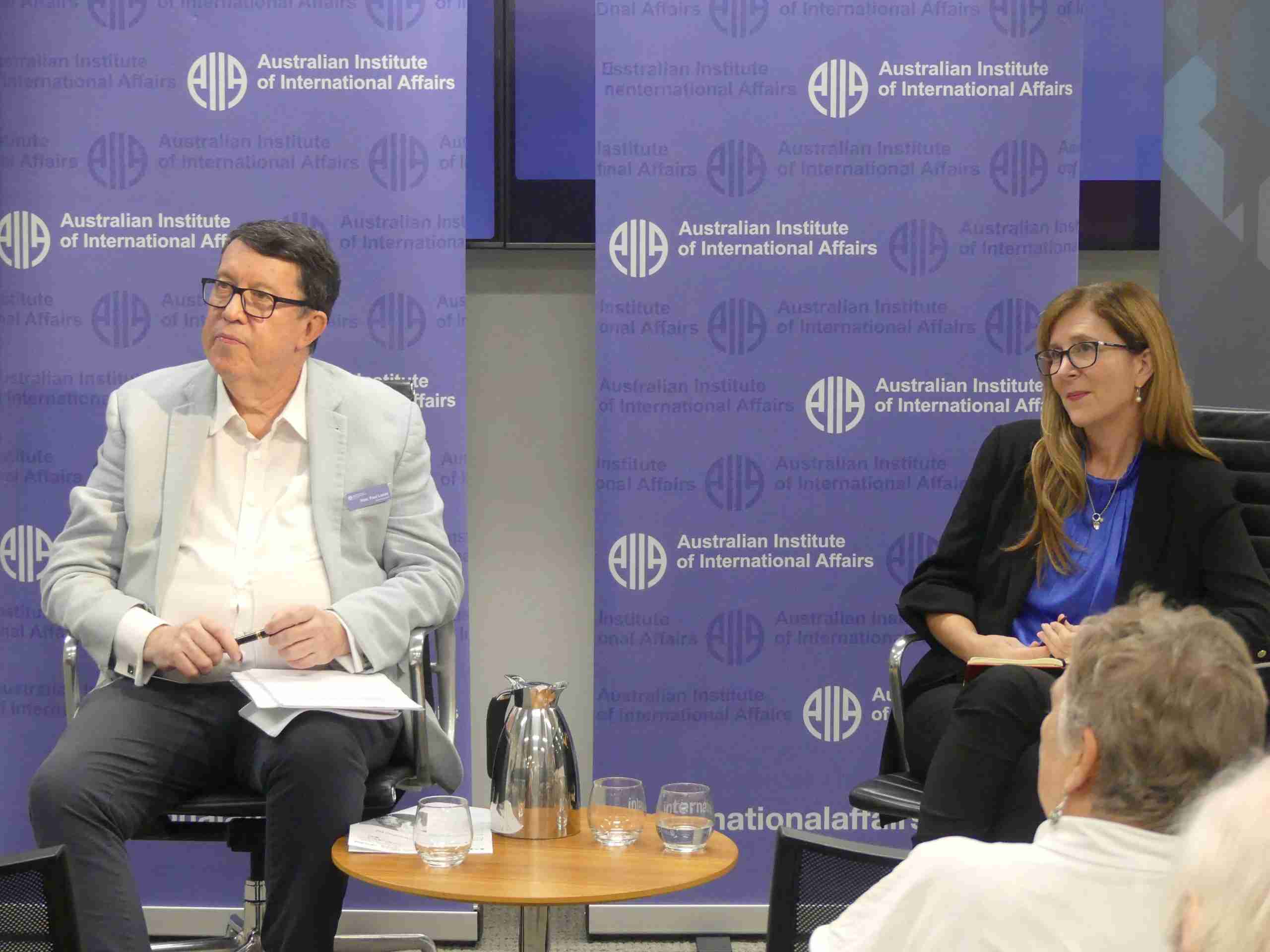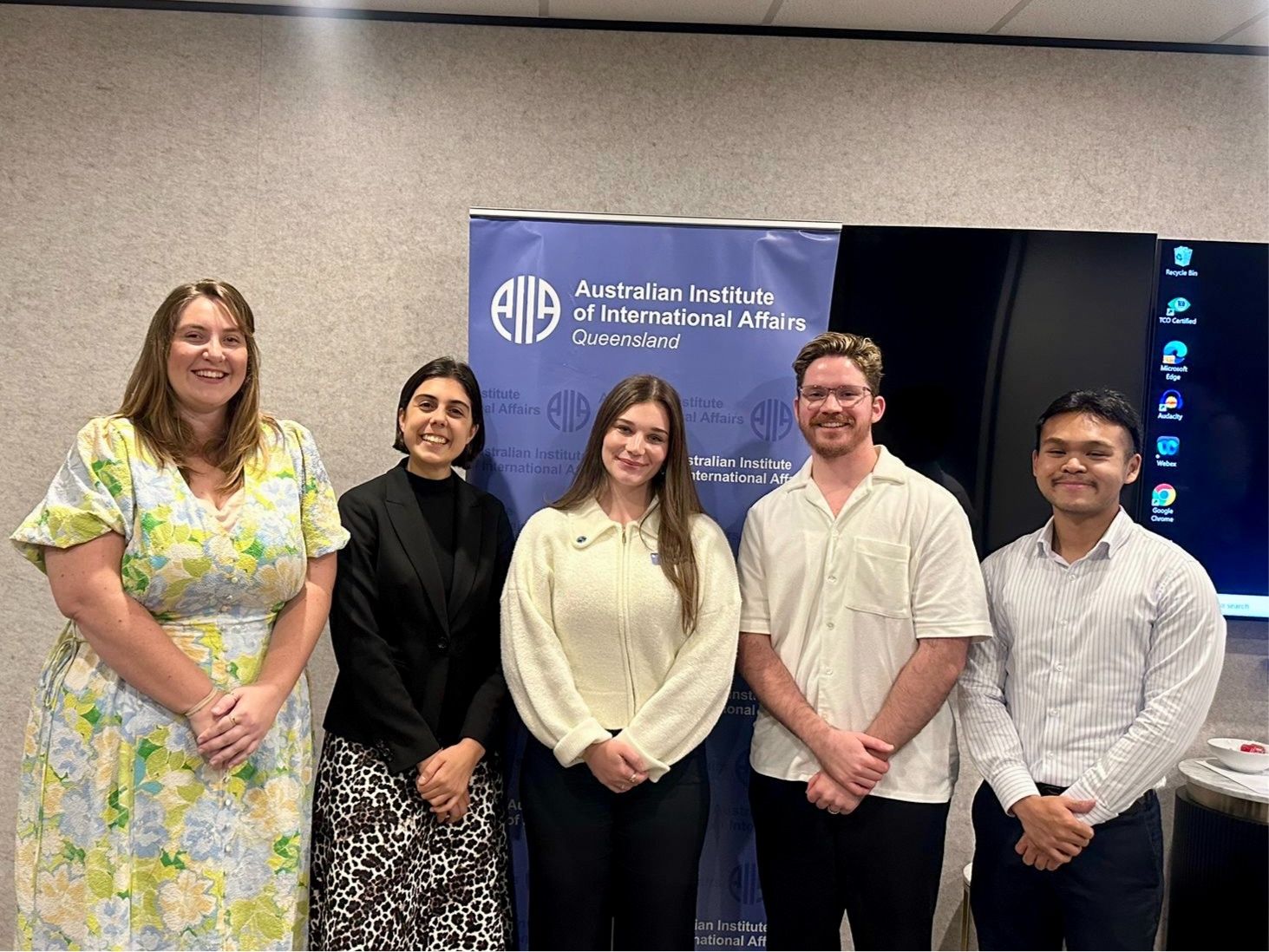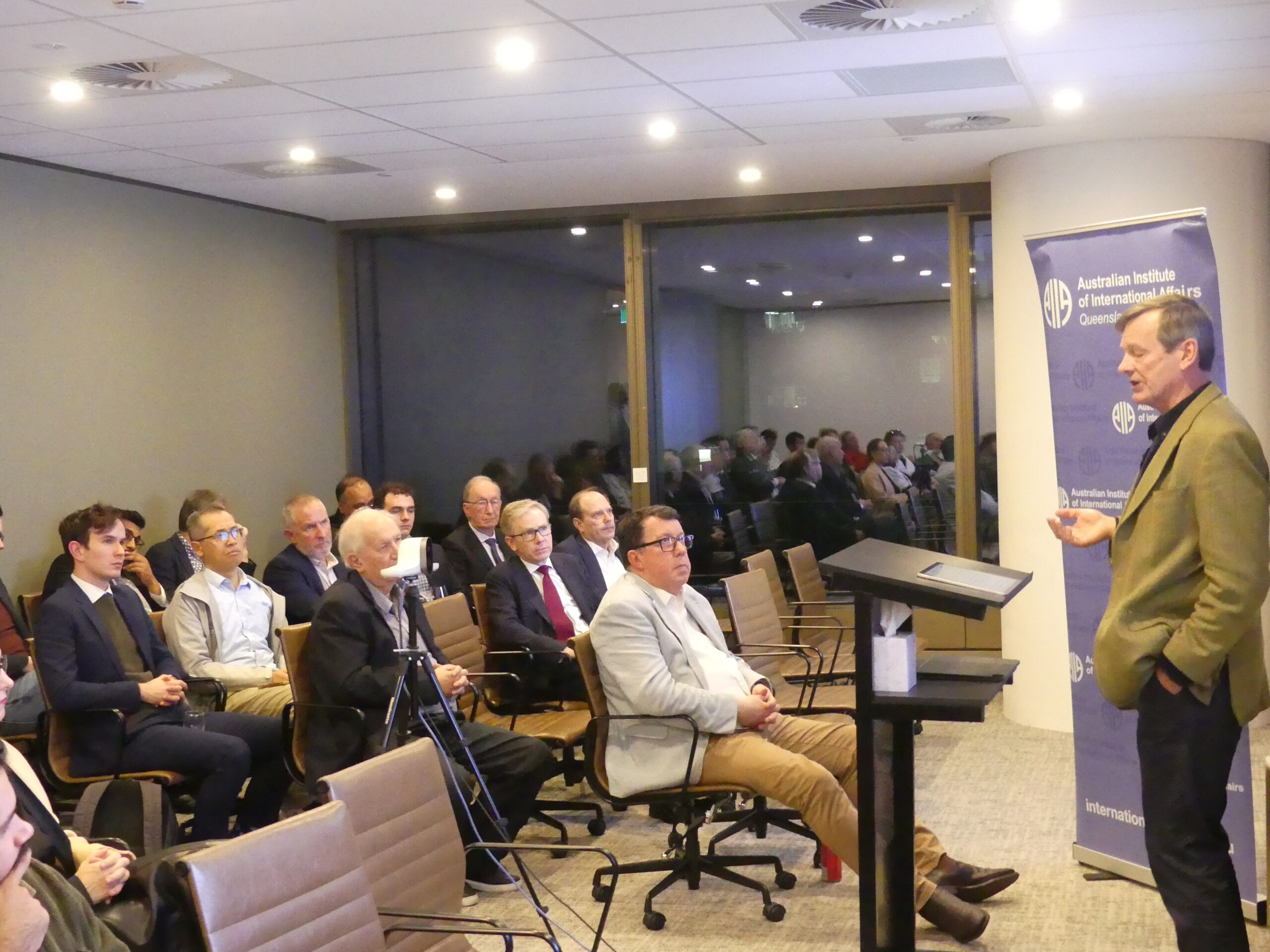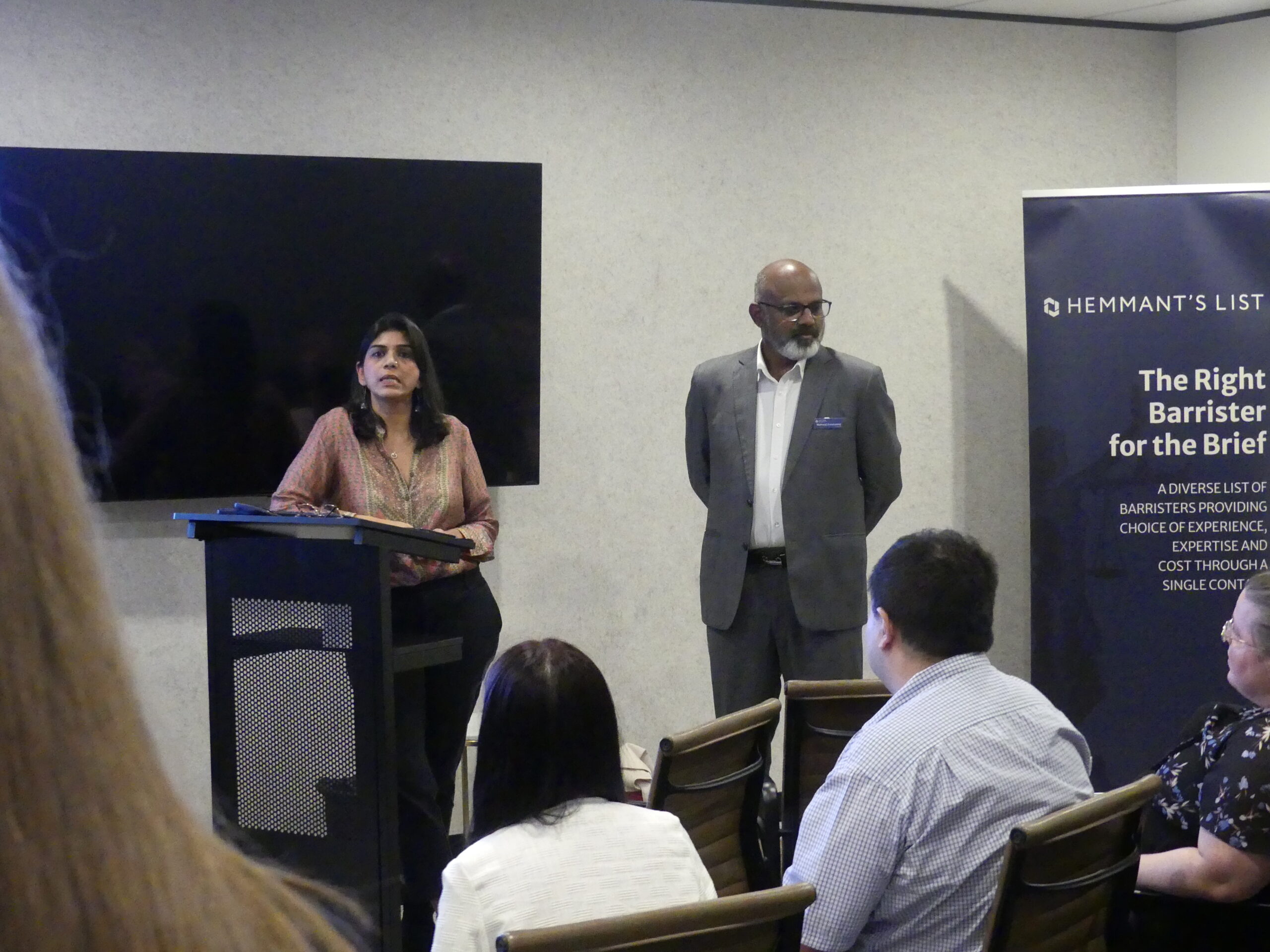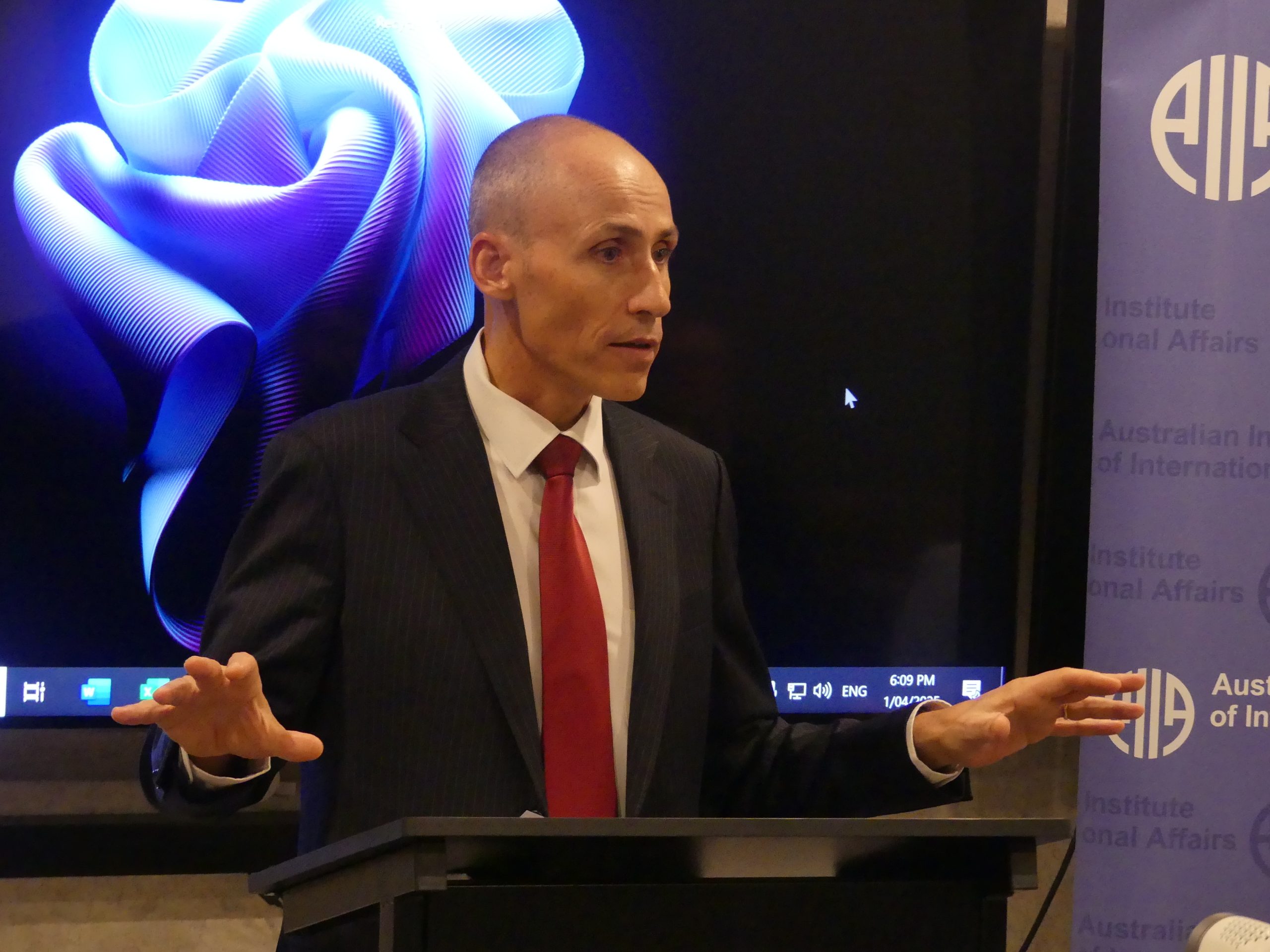Shifting global dynamics have placed middle powers such as Canada and Australia at the forefront of navigating complex geopolitical challenges. As major powers engage in renewed rivalries and global tensions intensify, the role of middle powers in preserving the rules-based international order and promoting diplomatic solutions has become increasingly vital. At a recent event hosted by the Australian Institute of International Affairs (AIIA) Queensland, Her Excellency Dr. Julie Sunday, Canada’s High Commissioner to Australia, delivered an insightful address on the strategic influence of middle powers in today’s fractured world.
Dr. Sunday highlighted how Canada’s experience on the global stage positions it to play a constructive role in promoting peace, security, and international cooperation. A seasoned diplomat, her extensive career also includes leading Canada’s clean tech strategy and coordinating the country’s response to the COVID-19 pandemic. Drawing from these experiences, Dr. Sunday emphasised that middle powers like Canada and Australia possess a unique ability to build consensus, mediate conflict, and drive diplomatic outcomes through principled engagement.
Dr. Sunday began her presentation by addressing the increasing fragmentation of the international system. The resurgence of great-power rivalries—as exemplified by tensions between the United States, China, and Russia—has weakened the framework of international norms established after World War II. In this context, middle powers have emerged as critical stabilising forces. Dr. Sunday explained that middle powers are exceptionally skilled at reading the diplomatic temperature and finding a path forward through difficult conversations. Unlike major powers, middle powers are not defined by military strength but by their ability to engage in multilateral diplomacy, build coalitions, and influence outcomes through strategic alliances and principled engagement. Maintaining a rules-based order is essential for preserving global stability and ensuring smaller and less powerful nations have a voice in shaping international norms.
“Middle powers are particularly good at listening, hearing the room and looking at how to respond. A predictable, stable world is what’s best—one that is firmly grounded in the system we all built post-World War II.”
Dr. Sunday cited Canada’s leadership in the global initiative against arbitrary detention as a compelling example of middle-power diplomacy. The initiative was launched in response to China’s detention of the “Two Michaels” (Michael Kovrig and Michael Spavor) and has since grown to include 81 countries, with Tanzania being the most recent addition. Arbitrary detention, which Dr. Sunday described as state-sponsored hostage-taking, erodes trust between nations and undermines the fabric of the international legal order. The initiative’s success reflects Canada’s ability to rally global support and create a framework for collective action.
Dr. Sunday also highlighted that Canada has established an independent legal panel composed of eminent jurists from each continent to examine the gaps in international law regarding arbitrary detention. The panel’s mandate is to identify shortcomings in existing legal frameworks and propose mechanisms for accountability and deterrence. The panel’s findings, expected to be released this summer, aim to strengthen international norms and create a legal basis for preventing and responding to state-sponsored hostage-taking.
“A loss of trust between states is devastating for a rules-based system. Arbitrary detention erodes that trust—it’s essentially state-sponsored hostage-taking, and it threatens the entire fabric of international law.”
Canada’s strategy involved securing the support of its Western allies and countries from the Global South, including African and South American nations. By framing the issue as a threat to the principles of sovereignty and human rights, Canada successfully built a broad-based coalition to pressure states engaged in arbitrary detention. The initiative’s long-term success depends on establishing accountability and legal recourse mechanisms. To this end, Canada has worked closely with the United Nations and the International Court of Justice to explore legal frameworks that would deter future violations.
Dr. Sunday also spoke about Canada’s leadership in environmental policy and clean technology development. As the architect of Canada’s clean air and clean tech strategy, she described how Canada has balanced its resource-rich economy with the imperative to reduce greenhouse gas emissions and invest in sustainable technologies. Canada’s clean tech strategy, which became one of the four pillars of the Pan-Canadian Framework on Climate Change, reflects the nuanced approach that middle powers can take when addressing global challenges. Canada’s success in clean tech development stems from close collaboration with industry, strategic investment in research and development, and engagement with international partners, including Australia. Australia is well-positioned to adopt similar strategies with its vast natural resources and growing renewable energy sector.
“Canada and Australia share similar objectives on climate policy. Our challenge is to balance economic growth with the transition to a low-carbon future, and that’s where collaboration on clean technology and innovation becomes essential.”
Economic diplomacy also plays a central role in shaping Canada’s global influence. Dr. Sunday highlighted the deep economic interdependence between Canada and the United States, noting that Canada buys more from the US than France, the UK, Japan, and China combined. Furthermore, Canada is the top export destination for 36 US states, with $4 billion in trade flowing between the two countries daily. However, Canada faces a significant trade deficit in manufacturing and services, reflecting the broader challenge middle powers face in maintaining economic sovereignty within a global economy dominated by larger powers.
Dr. Sunday clarified that Canada’s trade surplus with the US: around $60 billion is entirely due to energy exports. Excluding energy, Canada has a $30 billion deficit in other trade sectors, including a $20 billion deficit in manufacturing, which has been consistent since 2007. This underscores the complexity of Canada-US trade relations and the broader challenges facing middle powers in maintaining balanced economic relationships.
Canada has adopted a diversification strategy to address these challenges, participating in agreements such as the Comprehensive and Progressive Agreement for Trans-Pacific Partnership (CPTPP) and the Canada-European Union Comprehensive Economic and Trade Agreement (CETA). This approach aims to reduce Canada’s economic reliance on any single partner, particularly the US and China. Strengthening trade relationships with Indo-Pacific partners, including Australia, Japan, and South Korea, is a key part of this strategy.
Dr. Sunday mentioned that a recent trade mission to Australia involved 140 Canadian companies and over 240 delegates, reflecting the growing importance of Canada-Australia trade ties. The mission underscored Canada’s commitment to expanding economic partnerships in the Indo-Pacific region and fostering deeper bilateral engagement with Australia.
Dr. Sunday emphasised the natural alignment between Canada and Australia as middle powers. Both countries share democratic values, political structures, and a commitment to multilateralism. Joint military exercises, intelligence-sharing agreements, and cybersecurity cooperation reflect the growing security ties between Canada and Australia. Dr. Sunday argued that this partnership enhances both countries’ ability to respond to emerging threats and influence the behaviour of larger powers.
Dr. Sunday acknowledged that middle powers face significant challenges in a world marked by great-power rivalry, rising populism, and weakened multilateral institutions. However, these challenges allow middle powers to exercise more significant influence through strategic diplomacy. She emphasised that middle powers must remain adaptable, leveraging their diplomatic networks, economic relationships, and moral authority to navigate a rapidly changing global landscape. For Canada and Australia, this means strengthening regional partnerships, supporting multilateral institutions, and advocating for a more inclusive and equitable global order.
Edited by Déborah Bouchez
Written by Kiseki Fujisawa
Currently in her final year of a Juris Doctor degree at Griffith University, Kiseki Fujisawa is passionate about international law and global affairs. With a strong interest in the intersection of law and diplomacy, Kiseki aspires to contribute to the promotion of justice and peace on the global stage through legal and diplomatic efforts.
